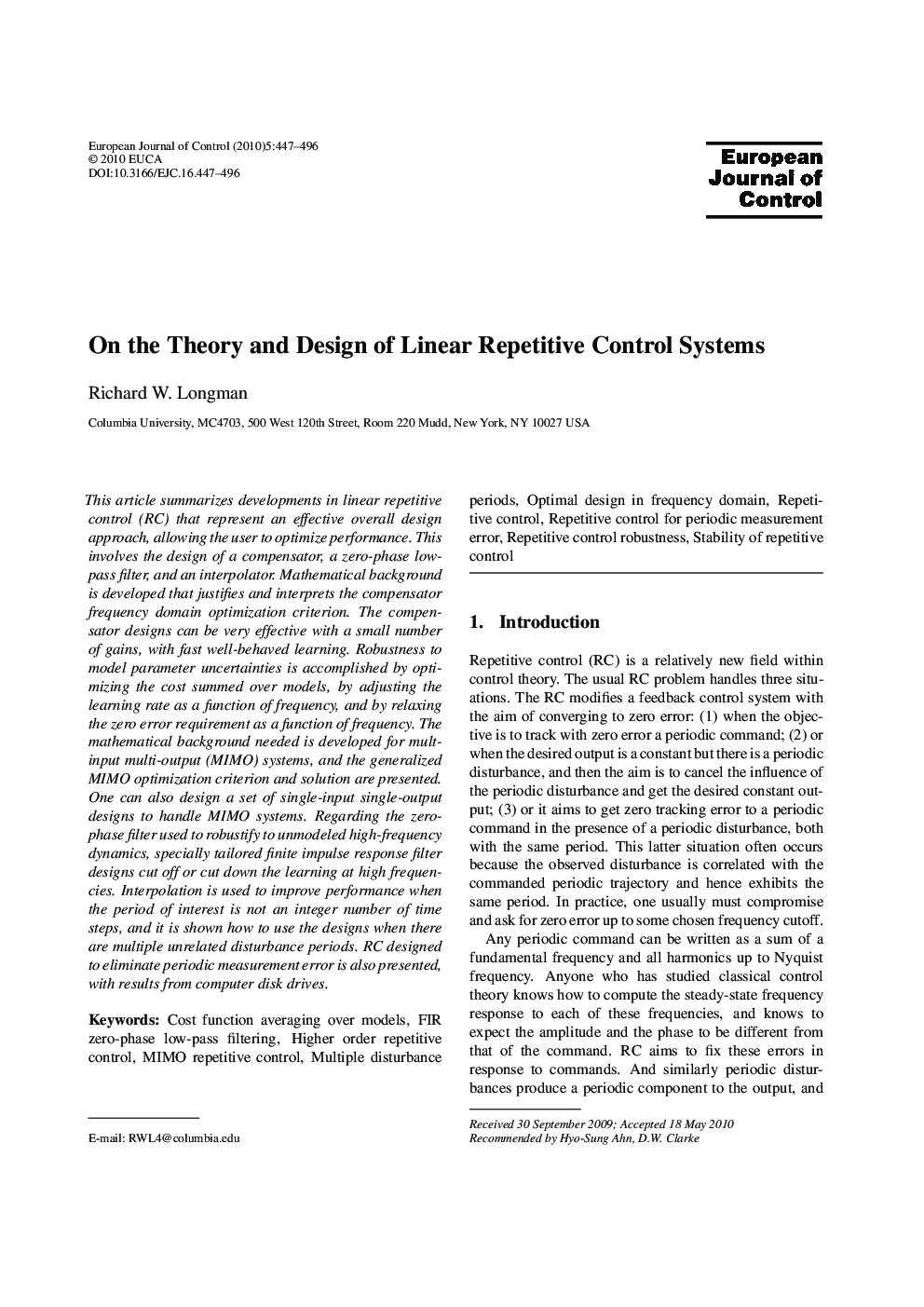| Article ID | Journal | Published Year | Pages | File Type |
|---|---|---|---|---|
| 708047 | European Journal of Control | 2010 | 50 Pages |
This article summarizes developments in linear repetitive control (RC) that represent an effective overall design approach, allowing the user to optimize performance. This involves the design of a compensator, a zero-phase lowpass filter, and an interpolator. Mathematical background is developed that justifies and interprets the compensator frequency domain optimization criterion. The compensator designs can be very effective with a small number of gains, with fast well-behaved learning. Robustness to model parameter uncertainties is accomplished by optimizing the cost summed over models, by adjusting the learning rate as a function of frequency, and by relaxing the zero error requirement as a function of frequency. The mathematical background needed is developed for multinput multi-output (MIMO) systems, and the generalized MIMO optimization criterion and solution are presented. One can also design a set of single-input single-output designs to handle MIMO systems. Regarding the zerophase filter used to robustify to unmodeled high-frequency dynamics, specially tailored finite impulse response filter designs cut off or cut down the learning at high frequencies. Interpolation is used to improve performance when the period of interest is not an integer number of time steps, and it is shown how to use the designs when there are multiple unrelated disturbance periods. RC designed to eliminate periodic measurement error is also presented, with results from computer disk drives.
